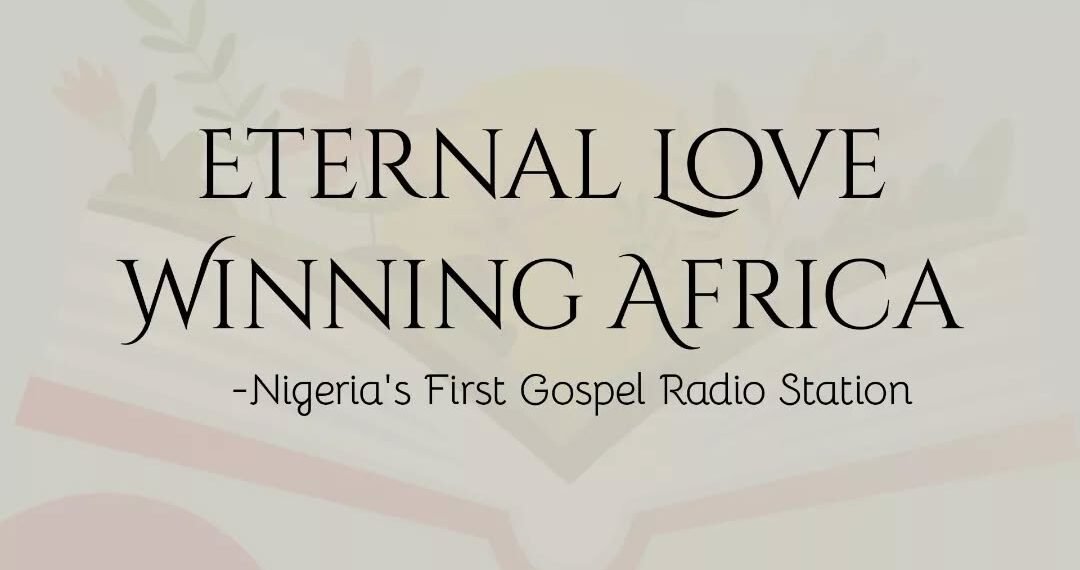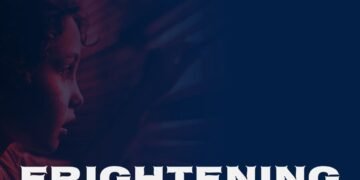The Birth of a Vision
In 1949, two Wheaton College (U.S) students, William Watkins and Abe Thiessen, who were training to become missionaries, became burdened about Africa. As they thought over it and prayed, they caught a vision of how “radio would play a big part in emerging Africa, and that God wanted us to use this channel to give out the Word of Life. We thought about Africa and of all the unreached people there. We thought of the few missionaries, of the hourglass of opportunity In Africa running out. Also, we thought a lot about the problem of reaching so many with so little in such a short time. Then we thought of radio. It had been done in other parts of the world-why not a gospel radio station for Africa?”
Formation of WABA and Partnership with SIM
In April 1950, they formed the West African Broadcasting Association (WABA) and afterwards decided to locate it in Liberia because it was the only African country where they could operate an independent missionary radio station at the time. In March 1952, the pioneers of the WABA, recognizing that their vision dovetailed with that of the Sudan Interior Mission (SIM), decided to merge them. (The station’s headquarters was located in Monrovia, but it was with responsible to the SIM headquarters in Jos.) The first station manager was Gordon Beecham, an SIM missionary in Nigeria for many years.
Birth of Radio ELWA
The radio station was assigned the call letters, ELWA, from which the eponym, “Eternal Love Winning Africa” was derived. On January 18, 1954, from the site that would come to be known as Radio Village, Radio ELWA aired its first programme. So was born the first Christian radio station in Africa, and one of the most remarkable evangelism innovations in twentieth century Africa. Immediately it was launched, Radio ELWA became one of the most powerful evangelism tools in the hands of missionaries and local evangelists: the station launched the era of radio missionaries and evangelists in Africa. By March 1955, programmes were being broadcast in French, Arabic, Hausa and Yoruba.
Impact and Notable Broadcast
Some of the most popular programmes were the broadcasts of the radio sermons of popular American evangelists like Billy Graham’s “Hour of Decision,” Charles Fuller’s “Old Fashioned Revival Hour,” Theodore Epp’s “Back to the Bible,” and Walter Maier’s “The Lutheran Hour.” One of the most beloved voices on Radio ELWA was that of Howard Jones, the first African-American evangelist on Billy Graham’s team and pastor of Smoot Memorial Alliance Church of Cleveland.” He had seen an advert by Radio ELWA, in Christian Life magazine, requesting for tapes of negro spirituals produced by black church choirs. Jones immediately put his choir together and they recorded tunes such as “Every Time I Feel the Spirit,” “Deep River,” and “Swing Low, Sweet Chariot.”
Howard Jones and Cultural Resonance
This immediately resonated with the audience, and soon Jones was asked to include a short message with the songs, which would be aired on the station’s prime time. Jones’ programme was usually introduced with the line, “This is Howard Jones, a Negro pastor from Cleveland, Ohio, in the United States.” His short sermons, designed to “transcend culture” boomed over the radio with a stirring appeal. The ways in which people adapted Radio ELWA broadcasts were endless. First drawn by the novelty of the “talking box” speaking their own language, thousands were brought to Christ by a simple presentation of the gospel of Christ which followed. Radio ELWA truly revolutionised evangelism in Africa. By mid-1971, the station had a staff strength of about 200 Africans and 60 expatriates.”
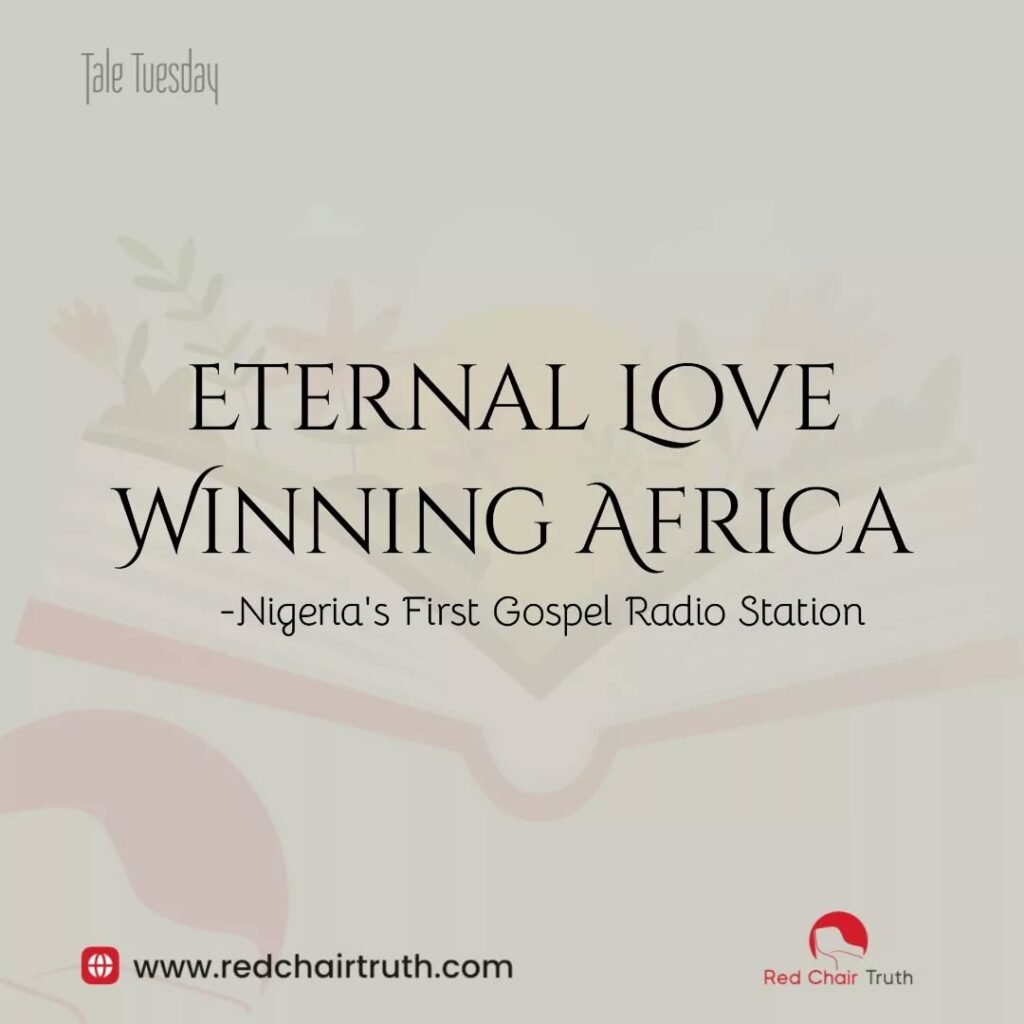
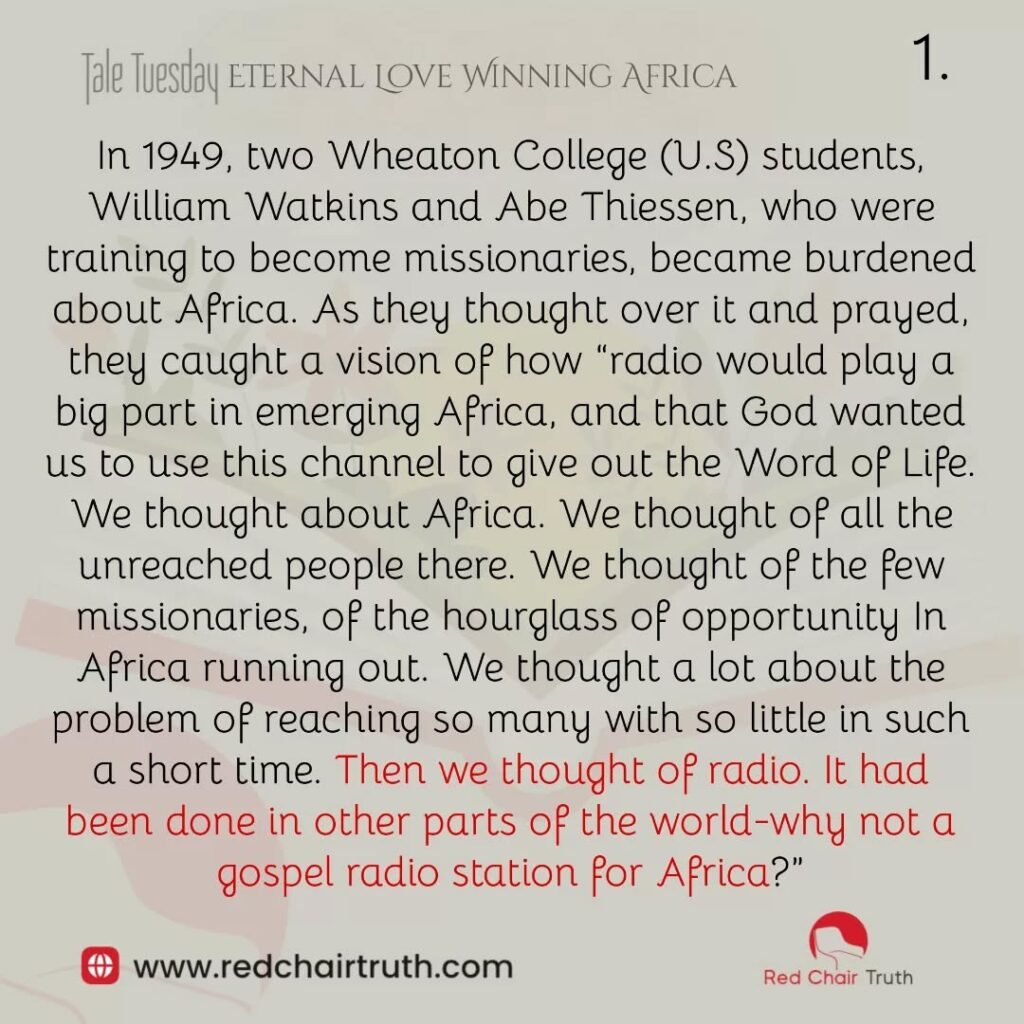
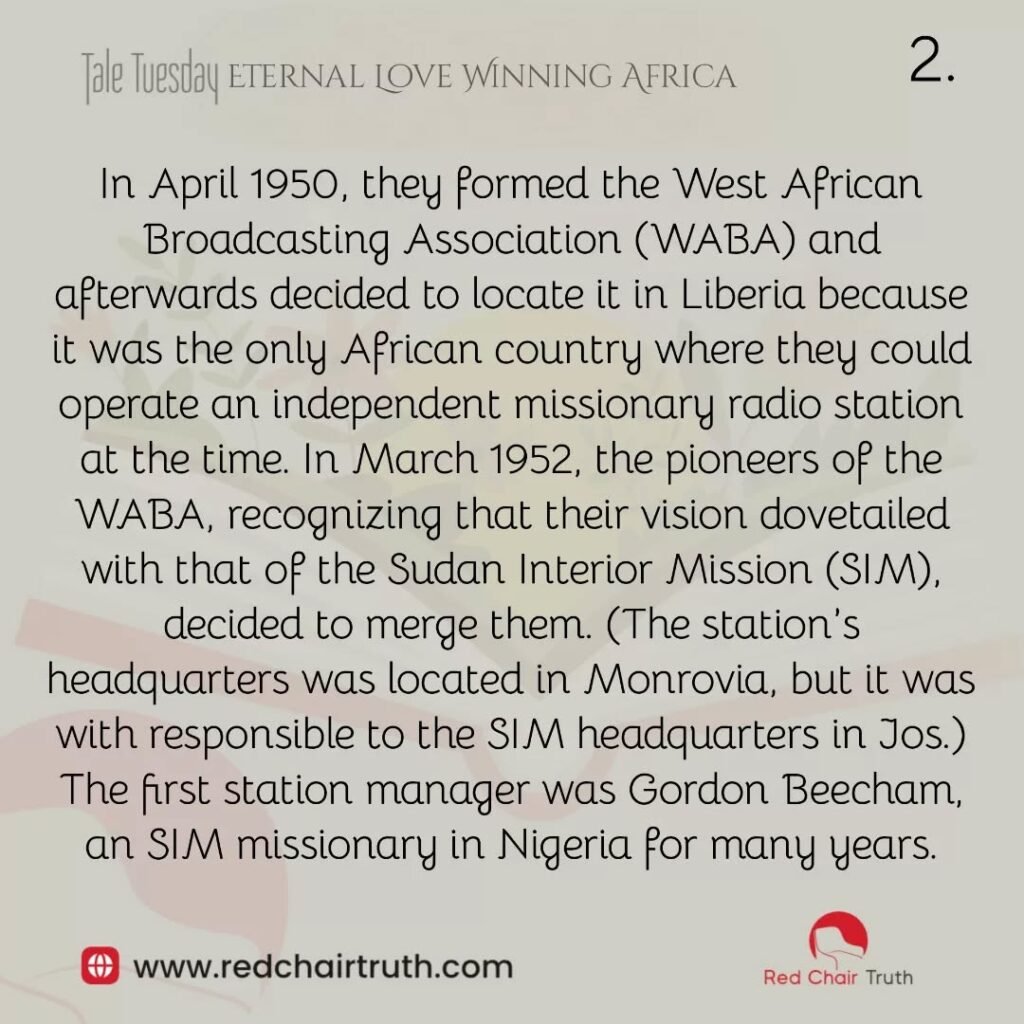
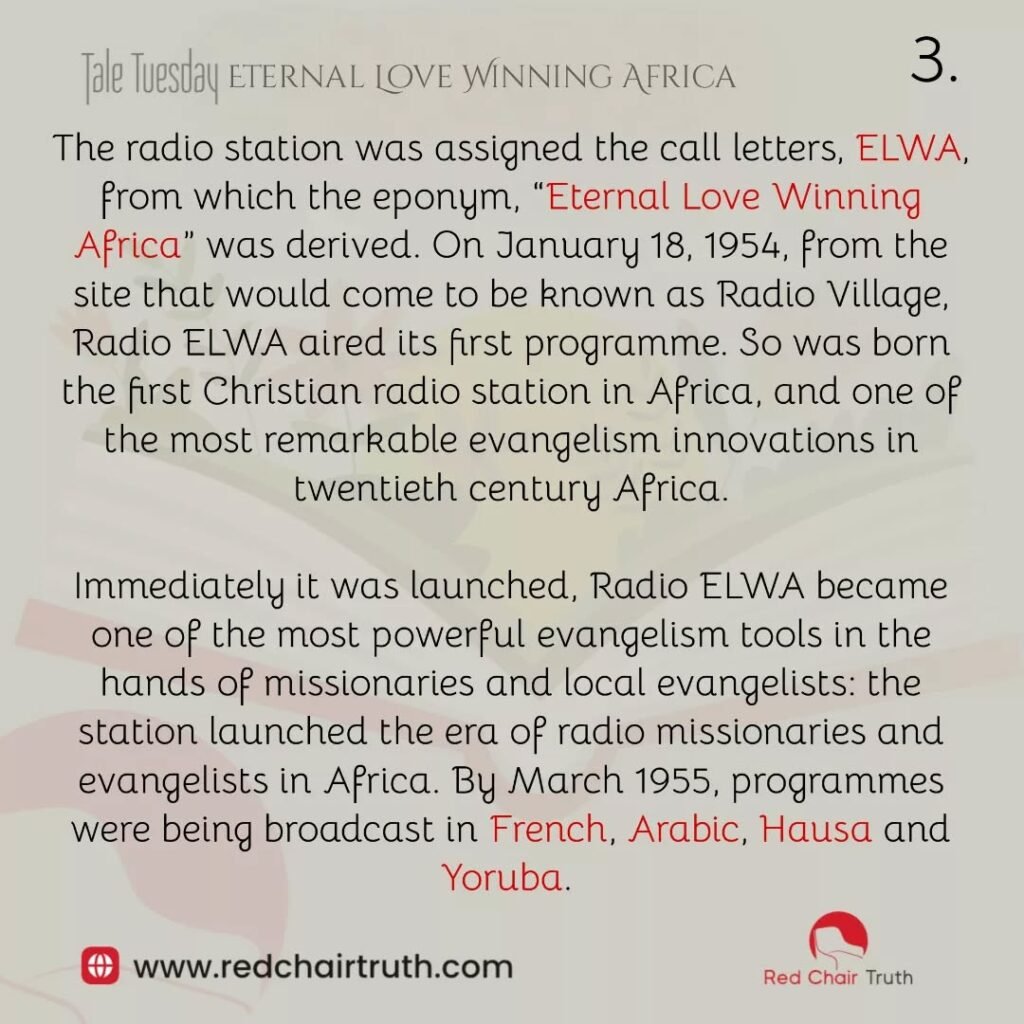
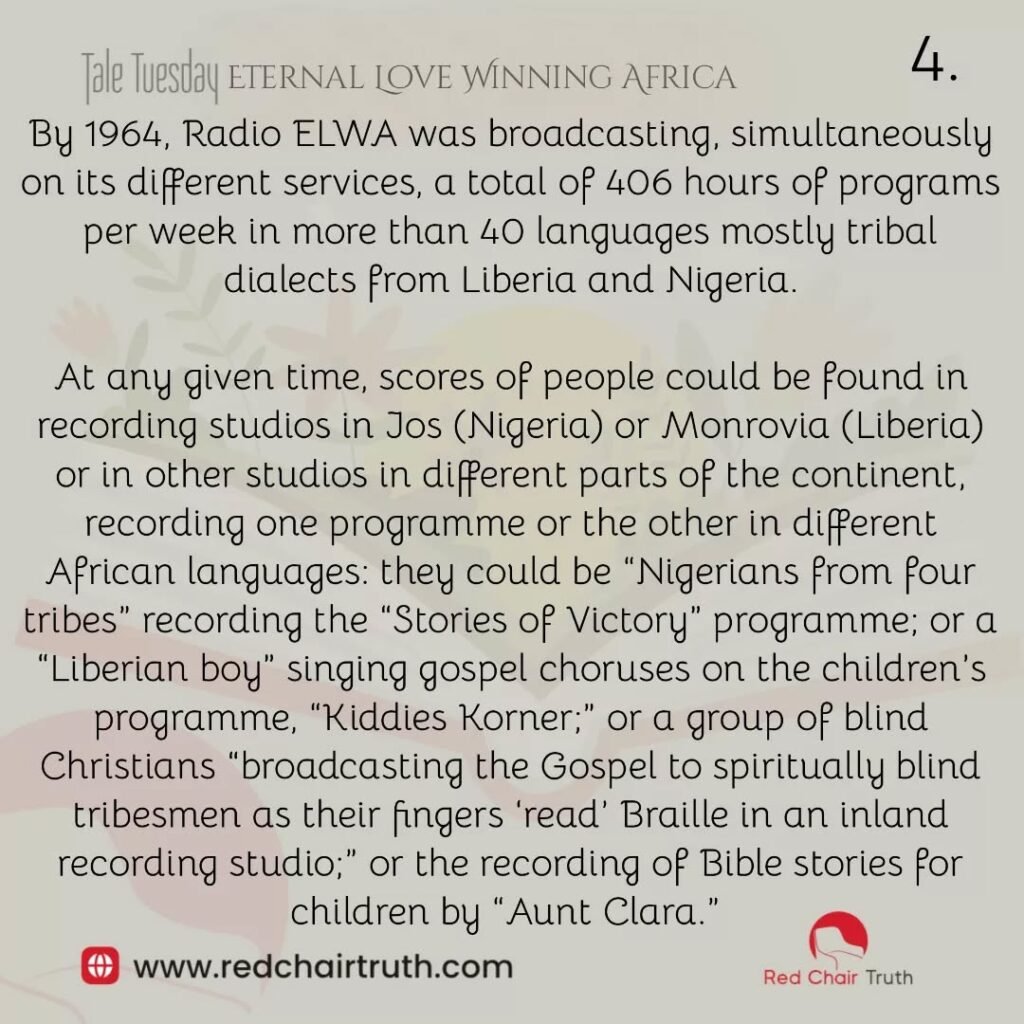
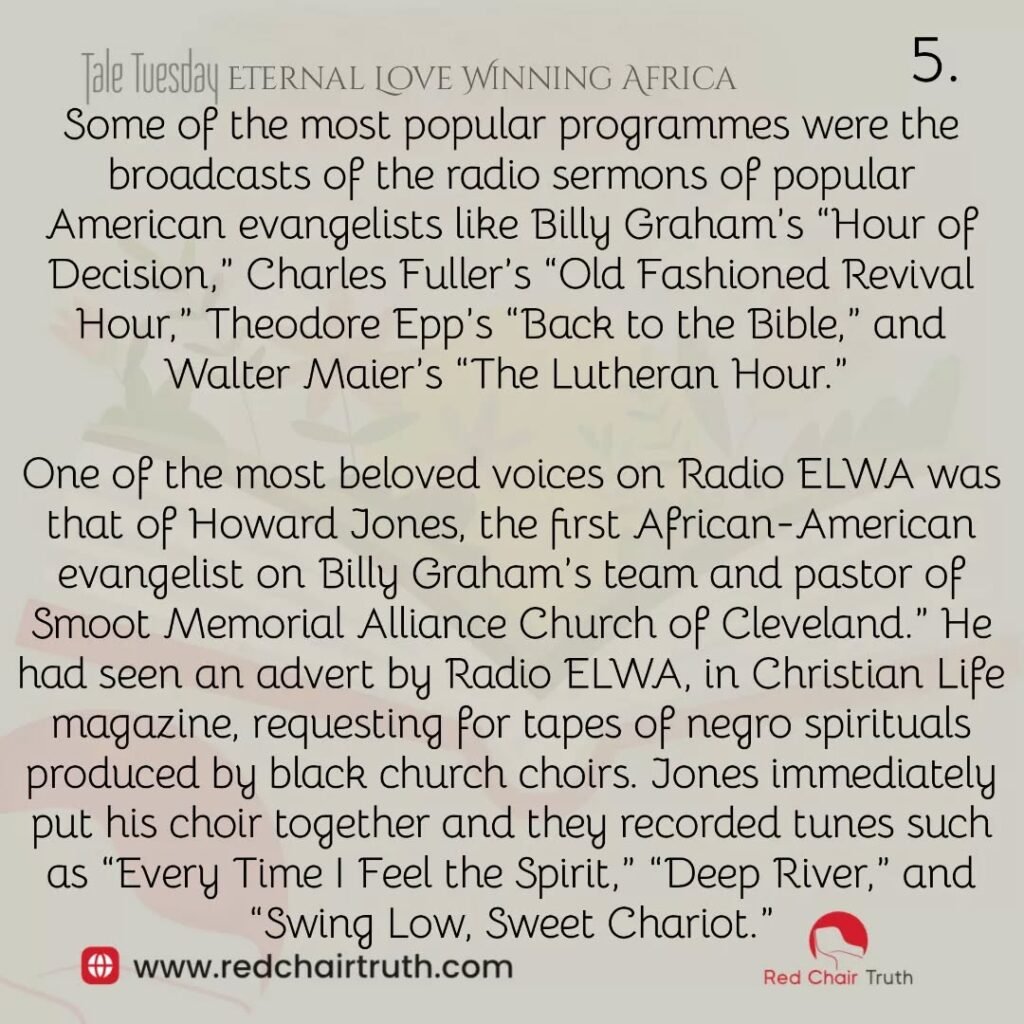
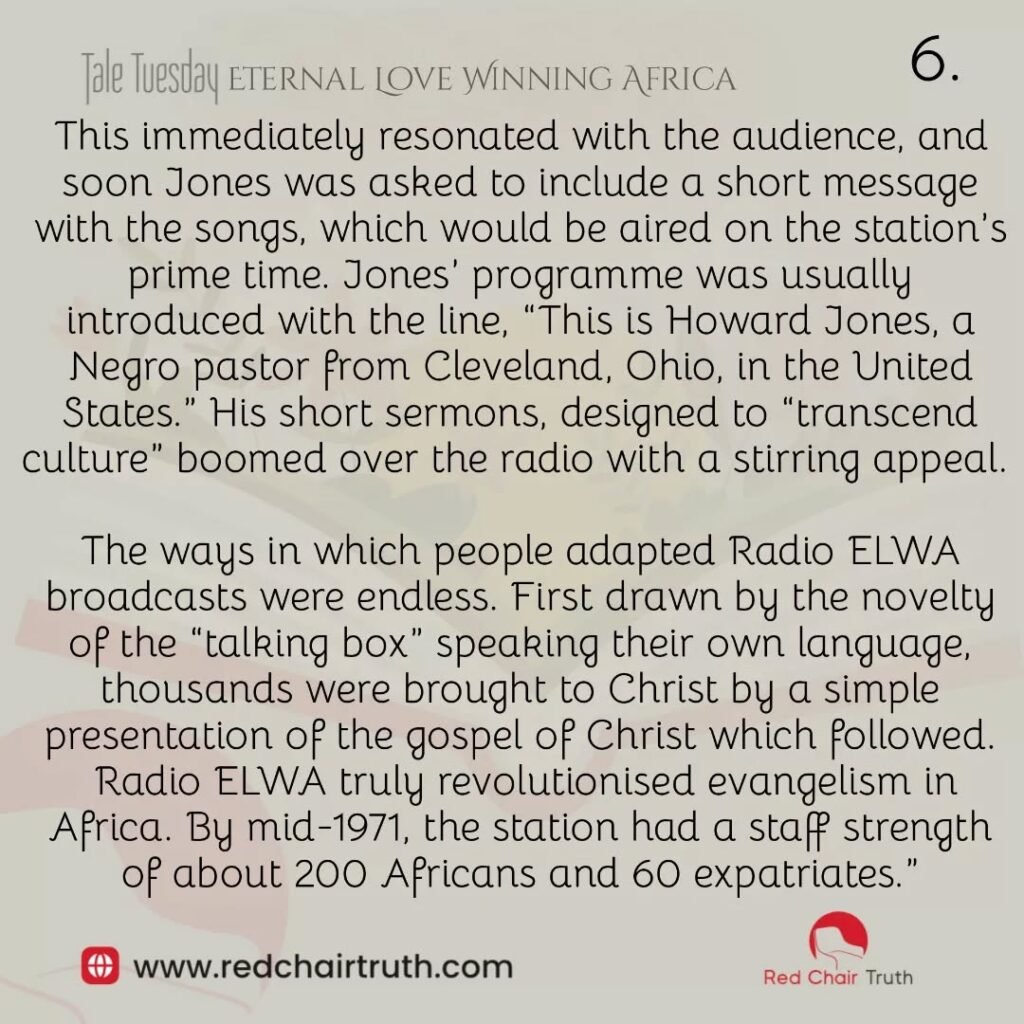
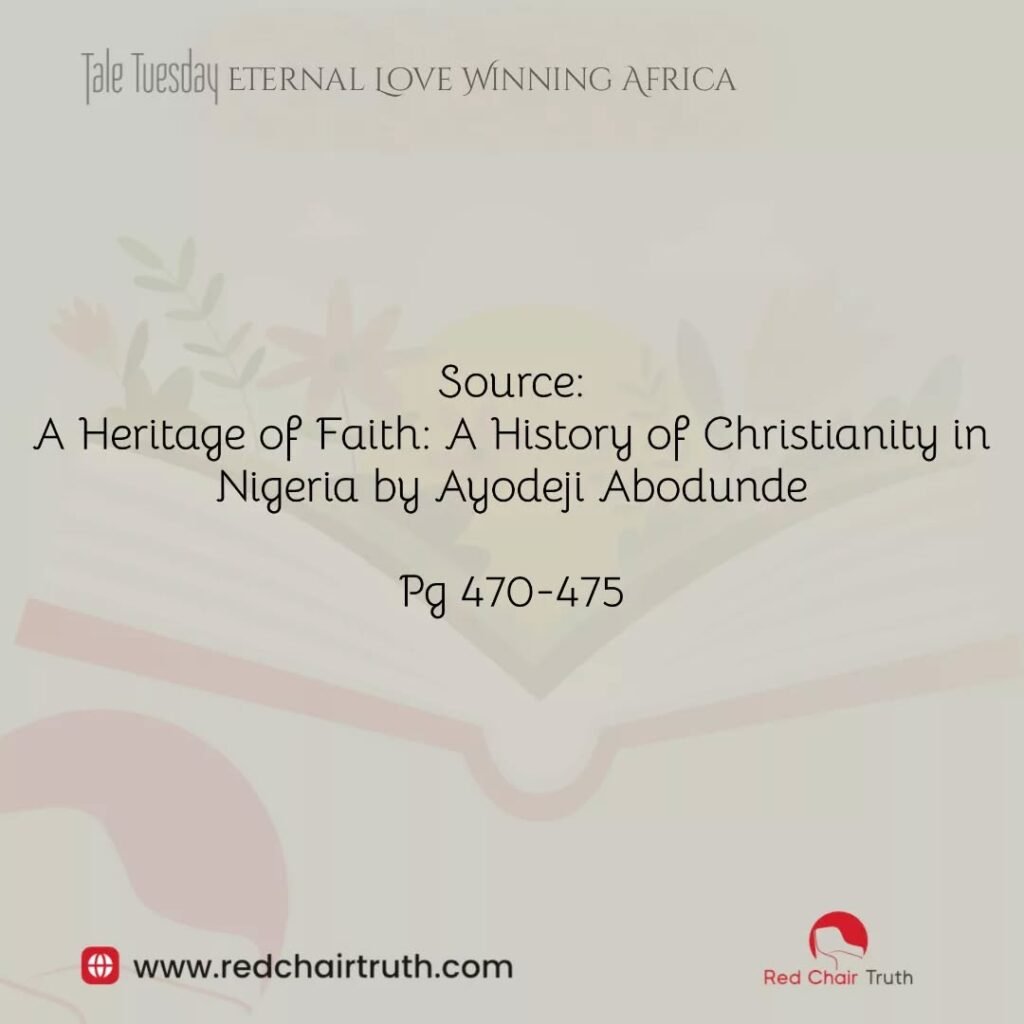
Date: 23rd August 2022
Title: ETERNAL LOVE WINNING AFRICA -Nigeria’s First Gospel Radio Station
Source: A Heritage of Faith: A History of Christianity in Nigeria
Author: Ayodeji Abodunde


